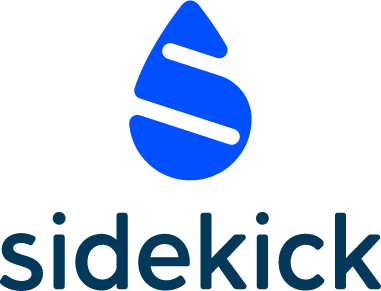As part of my work at McKinsey I have had the privilege to speak with many inspiring innovators.
However, the business community usually focuses more on companies, pitches and valuations, and less on the innovator.
I think it would be interesting to learn a bit more about the people behind healthcare innovation.
Therefore, I’m sharing some of my conversations with innovators in a condensed format: six questions and six answers about their experience, their opinions and their learnings.
The first is with Dr. Tryggvi Thorgeirsson, the cofounder of Nordic digital therapeutics startup SidekickHealth.
What’s your story; how did you become an innovator in healthcare?
Having treated tens of thousands of patients with lifestyle-related diseases as a medical doctor, I became increasingly frustrated by constantly putting out fires that could have been prevented by targeting the upstream roots of the chronic and lifestyle-related diseases that cause 68% of all deaths globally. My tipping point came when I was asked to prescribe the second anti-hypertensive drug to a 55-year-old woman with obesity who was suffering from hypertension. To me it was unacceptable that this was the best solution our advanced healthcare system had to offer her, when the cause of her problems originated in preventable, but ineffectively treated lifestyle factors.
After coming to terms with the fact that our current bricks-and-mortar approach to healthcare is unsustainable in the long-run, I decided to put down my stethoscope temporarily and enrolled into the Harvard School of Public Health, where I am now a guest lecturer in the field of behavioural economics for lifestyle interventions. This journey gave birth to the idea of Sidekick and underpins the foundation on which the platform inbuilt.
Where do you see the field of chronic disease management moving in the next ten years?
We are facing a global epidemic from the rapid rise of chronic illnesses, so more resources will have to be allocated towards prevention because our healthcare systems are bursting at the seams. And digital solutions represent an opportunity to address the current system’s shortcomings, at scale.
Pharmaceutical firms have done an excellent job at creating life-saving medicines, yet recent OECD figures show that poor adherence to medications contributes to nearly 200,000 premature deaths in Europe every year. Targeted behavioural nudges for patients to adhere to their traditional treatments can vastly improve their lives — even save lives. So we need to empower patients and encourage them to take control of their own health. Digital health solutions are extremely well-positioned to do this, especially since smartphone adoption continues to rise, providing the necessary reach to have a real impact.

Looking more broadly, what are the biggest opportunities and obstacles you see for innovation in the healthcare environment?
The trend towards value-based care and wider reimbursement of digital therapeutics is creating a growing business case for primary and secondary prevention, aligning the incentives to address the rise of lifestyle-related diseases, which cause 80% of global healthcare costs. However, by need and by nature the healthcare environment is both complex and highly regulated, which means that some stakeholders in the healthcare landscape are slow to adopt digital technologies — in comparison to banking services, for example, where digital banking is the norm.
When you look at the health system as a whole (providers, payers, regulators, doctors, patients) where did you see most/least openness for innovation?
Sidekick collaborates with stakeholders across the healthcare sector, and I would like to add pharmaceutical companies to the list, which are our largest customers. They see us as a natural fit and tend to be very open to innovation. While medical care accounts for about 10% to 20% of good health, behavioural factors account for up to 50%. Combining the best in clinical care with effective behavioural support, patient education, and medication management can significantly improve patient outcomes and adherence. We have seen the sector move rapidly into the digital space. Overall, stakeholders are open to innovation. However, while providers are open to innovation and keen to pilot solutions, the infrastructure and the commercial framework to scale is in many cases missing.
What’s the single most important thing that policymakers could do to enable digital transformation of the health system(s)?
I firmly believe that digital transformation is already underway. The UK’s NHS has developed a very ambitious digital strategy and, on the continent, Germany is taking exciting steps, such as allowing doctors to prescribe digital therapeutics. But this requires additional oversight, where a clear distinction is made between evidence-based digital therapeutics and more general health and wellness applications. Regulators have already given the first digital therapeutic solutions the nod of approval and, as long as watchdogs maintain a rigid vetting process of digital solutions that deliver better health outcomes, mainstream usage should be the norm in the not-too-distant future.
What do you know now that you wish you had known when you were starting out as an innovator and entrepreneur?
I am a trained medical doctor with a background in engineering. But I have also needed to wear the cloak of businessman and a salesman and have learned a lot about navigating the commercial territory of the healthcare landscape. As a doctor, my first instinct was to target healthcare providers; in fact, Sidekick’s growth is driven through collaboration with global pharmaceutical leaders. But hindsight is always 20/20 and without hard knocks and a good amount of hits and misses, we probably would not have reached this point. We made our mistakes and learned from them.
For more information, see Tryggvi Thorgeirsson and SidekickHealth.
About the authors: Tobias Silberzahn is a partner in McKinsey’s Berlin office and a member of McKinsey’s Pharma & MedTech Practice and Innovation Practice. Over the last decade Tobias has served mainly pharmaceutical, medical device and healthcare startup companies. The focus of his work is the interface between product development and commercial, where he typically supports his clients on strategic, digital, analytics and organisational topics. As part of his innovation work, Tobias leads McKinsey's Health Tech Network, a global community of over 200 startups in the healthcare space, hosts the European MedTech R&D Roundtable and the global Pharma Technical Development Roundtables.
Disclaimer: The views and opinions expressed in this article are solely those of the author and his guest contributor and do not reflect the views of McKinsey & Company.




